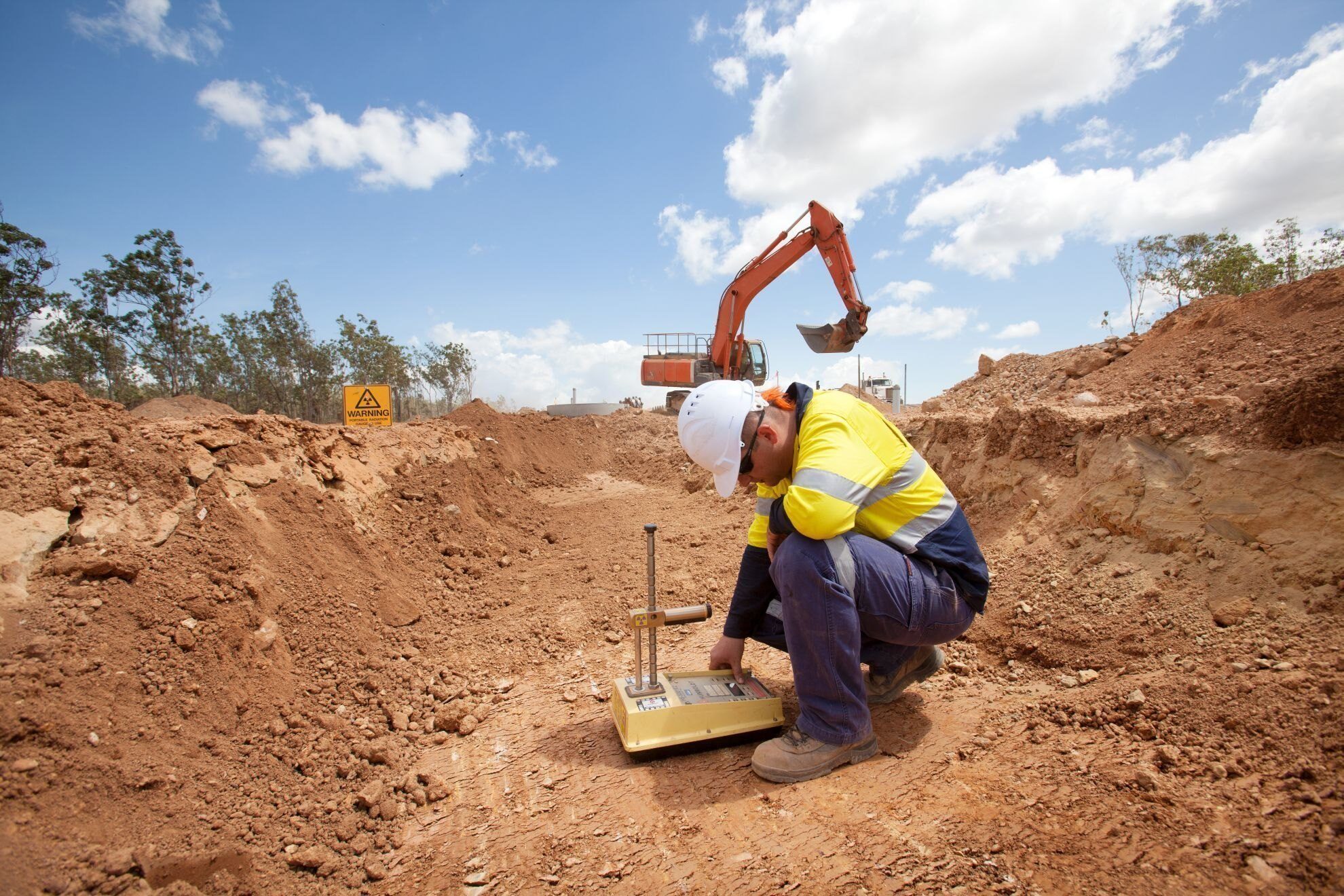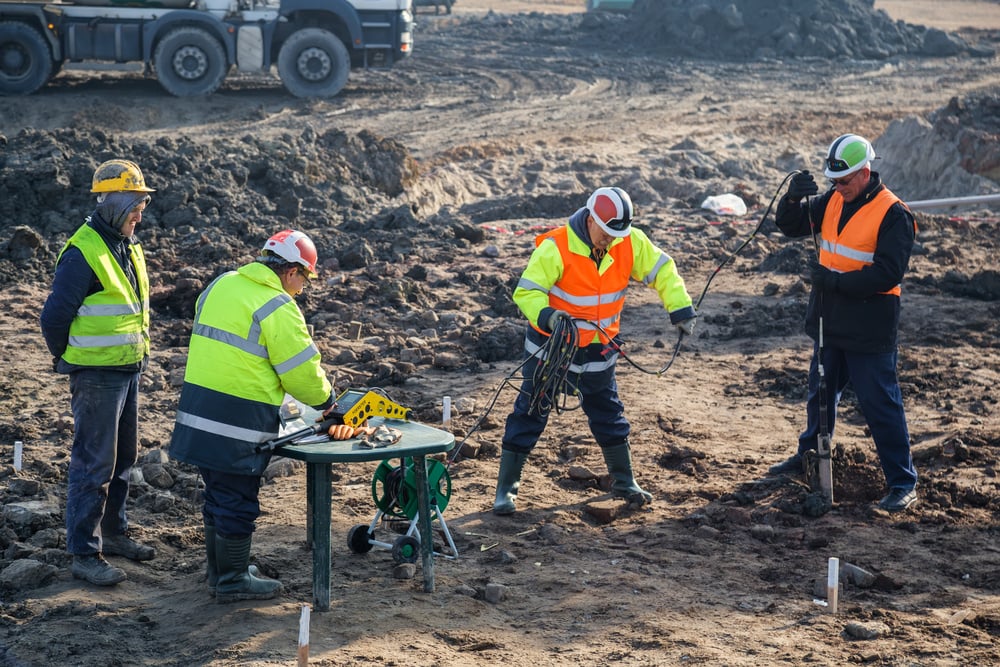Little Known Facts About Specialized Geotechnical Engineering Solutions.
Little Known Facts About Specialized Geotechnical Engineering Solutions.
Blog Article
7 Easy Facts About Specialized Geotechnical Engineering Solutions Explained
Table of ContentsThe 7-Minute Rule for Specialized Geotechnical Engineering SolutionsSome Of Specialized Geotechnical Engineering SolutionsAll about Specialized Geotechnical Engineering SolutionsThe Best Strategy To Use For Specialized Geotechnical Engineering Solutions
They carry out site examinations, collect examples, do research laboratory tests, and examine data to examine the suitability of the ground for building and construction jobs. Based on their searchings for, geotechnical designers offer referrals for foundation layout, slope security, preserving structures, and reduction of geotechnical hazards. They collaborate with various other specialists, such as designers, structural engineers, and building groups, to ensure that geotechnical considerations are incorporated into the general project design and implementation.
Structure Layout: Geotechnical engineers play a crucial role in designing foundations that can safely sustain the intended framework. They analyze the dirt problems and tons demands to determine the appropriate foundation type, such as superficial foundations (e.g., footings), deep foundations (e.g., heaps), or specialized methods like dirt improvement. They consider variables such as negotiation restrictions, bearing capability, and soil-structure communication to develop ideal structure styles.
7 Easy Facts About Specialized Geotechnical Engineering Solutions Explained
Here are some kinds of geotechnical engineers: Structure Engineer: Structure designers specialize in designing and examining structures for structures - Specialized Geotechnical Engineering Solutions. They analyze the soil problems, tons needs, and site qualities to identify one of the most ideal structure kind and style, such as shallow foundations, deep structures, or specialized strategies like heap foundations
They perform field screening, gather samples, and examine the collected information to define the dirt properties, geologic formations, and groundwater conditions at a site. Geotechnical Instrumentation Engineer: Geotechnical instrumentation designers focus on surveillance and measuring the actions of dirt, rock, and structures. They set up and keep instrumentation systems that keep an eye on factors such as soil negotiation, groundwater degrees, slope activities, and architectural variations to examine performance and give very early warnings of prospective issues.
In the workplace setting, geotechnical engineers make use of specialized software devices to perform calculations, create layouts, and evaluate data. Specialized Geotechnical Engineering Solutions. They prepare reports, testimonial project specifications, communicate with clients and group participants, and coordinate task activities. The workplace setting gives a favorable setting for research study, evaluation, and partnership with other professionals associated with the task
They regularly check out task websites to perform site examinations, evaluate geotechnical problems, and collect data for evaluation. These sees involve taking a trip to various places, occasionally in remote or challenging terrains. Geotechnical engineers may do soil tasting, conduct tests, and screen building and construction activities to make certain that the geotechnical aspects of the job are being executed correctly.
Not known Details About Specialized Geotechnical Engineering Solutions
Geotechnical this website designers also function in specialized geotechnical research laboratories. In these facilities, they perform experiments, carry out tests on recommended you read soil and rock samples, and assess the design properties of the materials. Geotechnical research laboratory designers function thoroughly in these environments, dealing with screening equipment, operating instruments, and tape-recording information. They collaborate with other lab personnel to make certain exact and reputable testing outcomes.
Keeping Wall surfaces: Developing walls that hold back dirt to prevent landslides and offer security on sloped terrains. Embankments and Earthworks: Creating embankments for roadways, trains, and dams to ensure they stay secure under anxiety. The mining market counts greatly on geotechnical design to make sure the security and long life of its operations.
With this in mind, we have created our program to prepare pupils for success. The Geotechnical Design program at the University of Delaware offers opportunities for sophisticated research and research study in: Dirt and rock mechanics Soil-structure interaction Integral modeling Computational geomechanics Foundation and earth frameworks design Ground improvement Incline stability and landslide stabilization Liquefaction of soils and quake engineering Research laboratory characterization of geomaterials and soil support Environmental geotechnics Provided the solid need for improvement to our nation's infrastructurethe American Culture of Civil Designers provided the united state
Geotechnical design is a branch of civil design; nevertheless, it entails using scientific approaches and principles to collect and analyze the physical homes of the ground. Geotechnical engineers are included in all phases of the layout of structures, from concept to construction. Their work is important in the style and planning process as they examine other the stability of soil, clay, silt, sand, and rock, before building and construction starting.
9 Easy Facts About Specialized Geotechnical Engineering Solutions Explained
This is adhered to by a ground examination based upon the searchings for of the desk study and involves test matching and sampling to uncover any potential issues. Geotechnical engineers function within multidisciplinary groups, supported by intermediate and jr designers in addition to by CAD specialists. As a senior geotechnical engineer on a hydro plant task, jobs might include participating in technological evaluations (e.g., peer reviews), tailings dam inspections, dam security evaluations, and various other studies connected to the layout and construction of mine waste facilities.
While some experts are experts entirely in geotechnics, others may work under titles like design rock hound or ground engineer within similar capabilities. As a geotechnical engineer, you'll need to: build and keep relationships with clients and various other professionals entailed in the website, throughout each projectmaintain safety requirements on site be mindful of price ramifications when you make recommendationsstudy geological maps and aerial photographs from a series of resources and from various time periodsexamine building and construction plans to see exactly how possible they are based upon your understanding of the siteinvestigate dangers or geological risks for the sitesearch for ecologically sensitive features, such as landfill beginning to develop accurate and expository ground modelsplan field investigationsdrill and analyse examples of bedrock, soil, groundwater and additional materials supervise other professionals on sitesolve technical issues as they develop, such as unexpected structures at drill sitesmonitor problems during and after building to make certain frameworks are secure in the short and lengthy termadd data gathered on website to your preliminary researchcreate geotechnical calculations, drawings, and 2 or three-dimensional computer system models analyzing the datamake referrals regarding the suggested use of the site.
There are whole lots of chances to satisfy new individuals, as you'll deal with a variety of experts at every website. The work can be demanding as you might be in charge of the safety of others while on website. There is additionally a high degree of monetary obligation, as the suggestions you make can have severe expense implications.

Report this page